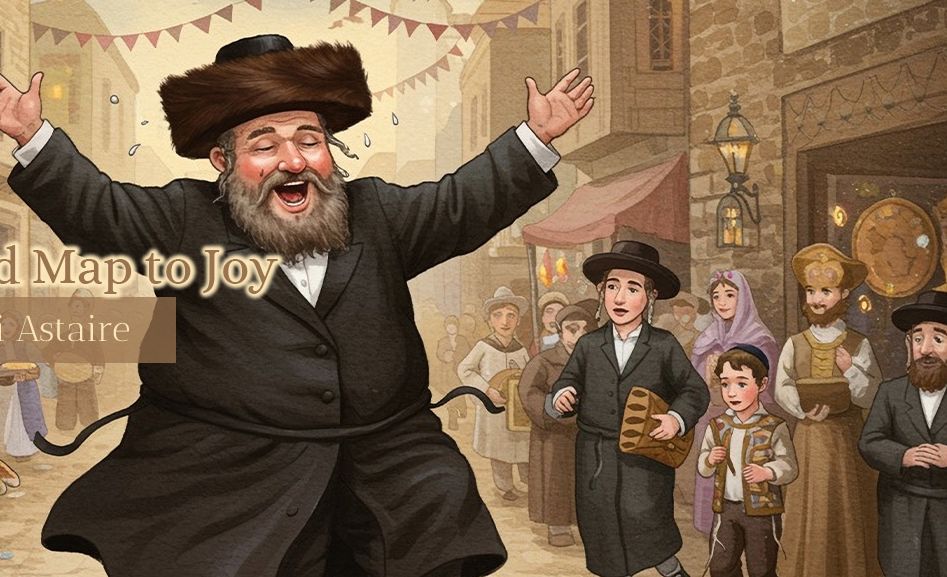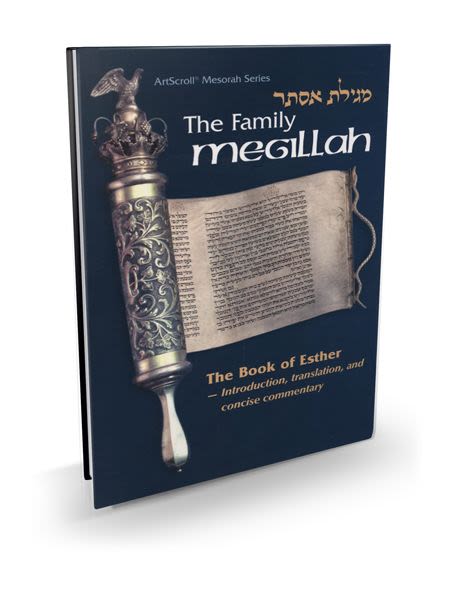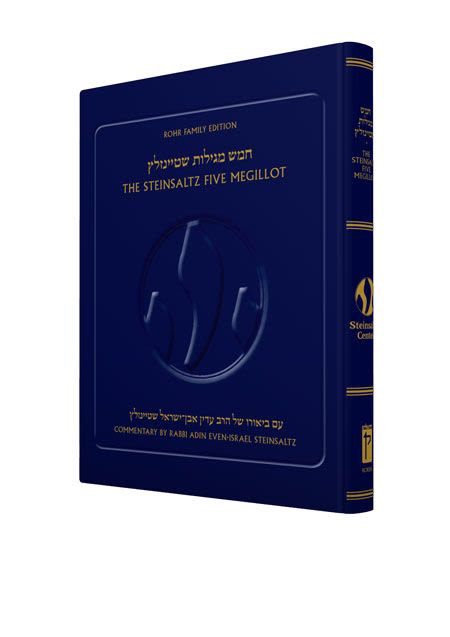
Purim and Megillat Esther
The Megilla speaks of the king's servants in present tense, yet speaks of Mordechai's refusal to bow down before flesh and blood in the future tense. Why?

The Deeds of Fathers, Examples to Sons
“And all the king’s servants at the king’s gate bow down and prostrate themselves before Haman…and Mordechai will neither bend the knee nor will he prostrate himself” (Esther 3:2).
The Megilla speaks of the king’s servants in present tense, yet speaks of Mordechai’s refusal to bow down before flesh and blood – particularly Haman – in the future tense. Why?
The entire secret of the Megilla, the miracle of Purim, and the miraculous salvation from our enemies in every generation is concealed within Mordechai’s refusal to bow down before Haman. To understand how, let me share the following parable with you:
Two deer lived in the lush forest of the Carpathians, near the border between Romania and the Ukraine. They enjoyed their freedom to graze in green meadows or stroll along bubbling streams as they pleased. Wiser than many of their herd, they reached a venerable deer age by avoiding hunters and hiding deep in the thickest forest during the hunting season. Both had stunning and stately antlers, a coveted trophy for any hunter.
One hunter was especially clever. He knew that the elder deer with the beautiful antlers had eluded his traps year after year. This year, he decided to try a new strategy: “I’ll refrain from using of guns or traps,” thought the sinister hunter, “and I’ll catch my prize buck deer with kindness!”
Hunting season was especially long. The younger deer were easily trapped and shot. The two elder bucks hid deep in the forest, far from the meadows and their prime source of food. They were subsisting on a meager diet of dry oak leaves, and were in danger of starving.
One day, the two bucks found plump golden kernels of corn on the floor of a clearing not far from their hideout. One of the bucks, known as Jeremy, pounced on the surprise treasured feast. The other buck, Benjamin, scolded him with a stern warning: “Jeremy! What are you doing? Corn doesn’t grow in the middle of the forest! This is suspicious; let’s leave here and return immediately to our hideout!”
Jeremy looked over his shoulder at Benjamin, and scoffed: “What an alarmist, dear friend; do you expect me to starve because of your far-fetched fantasized suspicions? Surely the corn was dropped by a crow or forgotten by a squirrel. No human could delve so deep in the forest to ensnare us…”
“As you wish,” said Benjamin, “but I prefer to place myself at the mercy of The Almighty rather than risking a tragic death at the hands of a hunter. I shall return to a repast of dry leaves, and hopefully, I will stay alive!”
Benjamin returned to his refuge deep in the forest, and weathered the hunting season. Jeremy, lured by the corn and the good life of grain suppers, eventually fell right into the outstretched arms of his cruel benefactor, ending up as an inanimate set of antlers on the hunter’s fireplace mantle.
To this day, Benjamin’s offspring enjoy the venison freedom of roaming the Carpathian forests, particular about what they eat.
Rebbe Nachman of Breslev teaches an eye-opening principle (see Likutei Moharan II: 77): By eating in holiness, one attains yirat shamayim, fear of the Almighty. Also, the tribe of Benjamin, who hosted the Holy Temple in their tribal land, are the symbol of fear of God, just as the name “Yerushalayim”, indicates yira-shalem, or the complete fear of God. With complete fear of God, one overcomes yirot nefulot, or fallen fears. In other words, when one truly and completely fears God, one need not fear anything else.
A closer look at Rebbe Nachman’s aforementioned Torah reveals the eternal secret of Purim and of our parable. Let me explain:
Mordechai, the tzaddik of his generation, was a descendant of Benjamin, the only son of Yaakov (Jacob) that didn’t bow down to Esau (since Benjamin was born after Jacob’s confrontation with Esau). Benjamin’s descendant Mordechai was therefore especially strong in his refusal to bow down to Esau’s descendant Haman in accordance with the spiritual law that the acts of fathers pave the way for the acts of sons.
Although, according the Midrash’s description, King Achashverosh prepared special glatt-kosher cuisine to enable the Jews to participate in his royal feast, Mordechai refused to participate. He knew that this was a trap to bring the Jews to eat with compromised standards of holiness, such as having gentile waiters serve them wine, or to be within earshot of gentile women, and so forth.
Haman is the “trapper” who initiated the glatt kosher bait for the Jews. He knew that eating without holiness would impair their fear of God, and subsequently the Jews would bow down to him. By way of the royal feast, Haman – the great-grandson of Amalek and Esau – conspired to bend the Jews under the yoke of Amalek. As such, we can understand why the Jews participation in the royal feast – even though the food was glatt kosher – led to a decree of annihilation.
Benjamin, the venerable buck who symbolizes the tribe of Benjamin, refused to fall prey to the golden kernels of corn, just as Mordechai maintained his high standard of eating and refrained from partaking of royal delicacies. Benjamin – like Mordechai – preferred starvation to lowering his standards. Benjamin the buck lived to pass his lessons in life on to his offspring, and to teach them how he avoided succumbing to the hunter’s ensnarement. Mordechai, whose holiness in eating led to lofty level of yirat shamayim, feared only God and therefore feared no one else – including Haman and Achashverosh. Even more so, Mordechai was the catalyst of Haman’s downfall.
Since part of our celebration of Purim is eating and drinking, God enables all of us to turn our consumption of food and beverages into the performance of a lofty commandment. Eating and drinking on Purim therefore assumes an aura of holiness, and according to Rebbe Nachman’s principle, is therefore conducive to the fear of God.
Finally, the Megilla mentions Mordechai’s refusal to bow down to Haman in future tense, as a shining example and blessing for all future generations to fear God only, and nothing or no one else. Such a complete level of yirat shamayim, fear of Heaven, stimulates rachmei shamayim, God’s loving compassion that saves us from the Hamans of each generation. May the offspring of Haman and Amalek be erased from the earth and from our memories, speedily and in our time, amen.












Tell us what you think!
Thank you for your comment!
It will be published after approval by the Editor.